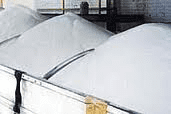 A raft of sugar support companies, in operations from cane harvesting to ethanol storage, are to spring up in Brazil to enable the huge wave of investment needed to keep the country abreast of rising consumption.
A raft of sugar support companies, in operations from cane harvesting to ethanol storage, are to spring up in Brazil to enable the huge wave of investment needed to keep the country abreast of rising consumption.
The opportunities springing from the more-than-doubling in Brazilian sugar output, to 70m tonnes, required by 2030-31 to meet world demand will extend beyond simple mill construction, Toby Cohen, senior analyst at Czarnikow, said.
"Mills might want to produce, own, market, trade their own sugar, but they often quickly realise it is not quite so feasible to control the whole chain," Mr Cohen told Agrimoney.com.
"They find they need people to provide consultancy services."
The need for external companies is underlined by the scale of the investment needed in Brazilian sugar, with Czarnikow estimating last week that up to $490bn could be required over the next 20 years.
"The requirement for investment is vast, and an awful lot for a few operators to take on themselves."
Farmed off
Already, the industry in longer-established parts of Brazil, such as Riberao Preto in Sao Paulo state, had separated substantially, as in many other agricultural sectors, between processors – the mills – and farmers – the cane growers.
"In newer areas, such as Minas Gerais, that is not as marked, and more than 70% of cane is still grown by mills," Mr Cohen said.
Longer-term mills are still likely to grow more than half the cane they crush, but even cutting back to this level will pass on to farmers some $55bn in investment needs.
‘Bigger than houses’
However, it was likely that Brazil would follow Australia in witnessing the creation of specialist cane cutting companies, whose business model was based on getting the highest returns from harvesters which can cost some $500,000.
"You go to cane farms with their own harvesting machines, and the machinery sheds are bigger than their houses," Mr Cohen said.
There is scope for cane logistics companies too, given the amount of cane which needs transporting to mills – a process which in Australia is undertaken largely on private railways.
"If you think that the sucrose content of cane is roughly 10% sucrose, then you need to transport about 10 times as much cane as sugar."
Indeed, at $23.5bn, cane transportation was the area of infrastructure requiring the most investment, ahead of carrying or storing sugar or ethanol.
Ethanol pipeline
Nonetheless, some $8.5bn is needed to boost ethanol storage, Czarnikow believes, and a further $8.8bn on pipelines for the biofuel, which should not, for reasons of chemistry, be transported through the same network as gasoline.
Investment will be needed too in port infrastructure, and reduce the queues of ships waiting to load up which, last year, peaked at well above 100 vessels.
And tie-ups with energy groups over the electricity produced from burning cane processing waste will give "cane processors the opportunity to concentrate on their own core business and to access more capital".
http://www.agrimoney.com/news/brazils-sugar-splurge-to-drive-wave-of-start-ups–3628.html

Deprecated: strpos(): Passing null to parameter #1 ($haystack) of type string is deprecated in /home/agriviek8Qv/agriviet.net/public_html/wp-includes/comment-template.php on line 2522